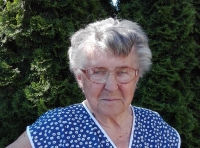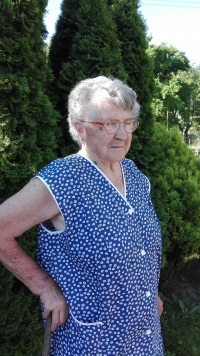Father got German citizenship and ran away from the Sudeten, leaving his family behind

Download image
Elfriede Janíková was born on the 11th of March in 1928 in Darkovice near Opava, just next to the border of what was then Germany. The family was Czech but the father enrolled his children to a German language school and claimed German nationality so that he could commute to Germany for work. He worked as a contractor in Wroclav (then Breslau). During the WWII, he moved his wife and children to Wroclaw. The older son fought on the Western front, in France, where he was taken prisoner of war. Towards the end of the war, father had the family move to the former Czechoslovak Sudetenland, to Most and later to Teplice. The father stayed in Germany. After the war, he did not move back to Darkovice and he stayed with his new family in Hannover. His wife stayed on her own with her children who were already adult. The family avoided the expulsion but Elfriede witnessed the oppression of people who had claimed German nationality as her father had done. The father did not keep much contact with the family. Elfriede visited him in the 1950’s in what was then West Germany and her father was trying to persuade her to stay there for her family’s sake – at that time, she already had a small daughter – but she decided to stay in Czechosloakia. When the father died, he bequeathed a part of his property to his first family in Czechoslovakia as well. In 2019, the witness lived in Darkovice.

